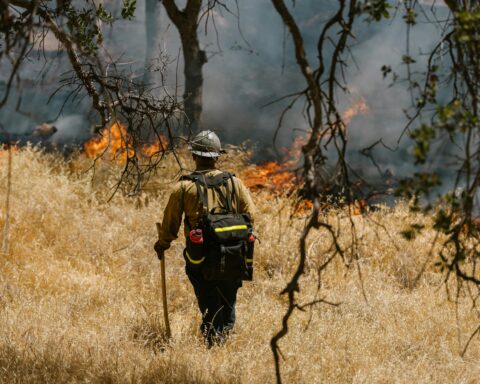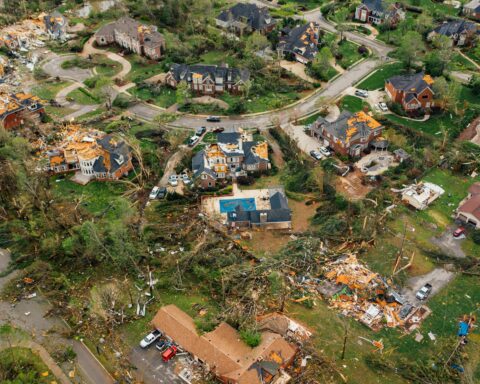The state of New York is making $100 million available to support clean-energy upgrades at public schools. The grant program is part of an ongoing effort to create healthier learning environments and improve air quality by decarbonizing school buildings. Applications are due by June 6, 2024.
The New York State Energy Research and Development Authority (NYSERDA), a state agency dedicated to reducing greenhouse gas emissions and improving quality of life, will administer the funding. The grants are part of a broader $400 million fund set aside by the Clean Water, Clean Air, and Green Jobs Environmental Bond Act (EBA). The EBA is a $4.2 billion program that helps communities adapt to climate change and create green jobs.
The $400 million from the EBA supports green building projects and expands the Clean Green Schools Initiative launched in 2022. The initiative is designed to help public schools that “traditionally lack resources to invest in infrastructure improvements,” state officials said.
Schools are working to stay cool as climate change increases the number of extreme-heat days and strains antiquated infrastructure that needs repairs or clean-energy technology upgrades. 2023 marked the hottest year globally, according to an analysis by the National Oceanic and Atmospheric Administration (NOAA).
High-need public schools are eligible to apply for incentives starting at $500,000. Public schools located in areas the Climate Justice Working Group (CJWG) has identified as disadvantaged communities are also eligible. Qualifying projects include those that improve air quality, increase resiliency and create paths toward electrifying systems to achieve carbon neutrality.
The next round of applications follows the state’s 2023 award of $14 million to help lower greenhouse gas emissions at 11 schools. Projects included installing ground and air source heat pumps and electric kitchen equipment.
Applicants submitting concept papers and proposals should state the name of the proposer, the PON/RFP number, the page number and adhere to formats the state has outlined. Failure to include a signed copy of the proposal may result in disqualification, according to NYSERDA application instructions.
Project costs are covered up to 100% with per-building funding maximums ranging between $10,000 to $100,000. Amounts are determined by whether the proposal centers on conducting energy studies or construction projects that decarbonize buildings, according to a program overview.
Aside from the EBA, the grant program is also supported by the Regional Greenhouse Gas Initiative and the state’s 10-year, $5.3 billion Clean Energy Fund. The Regional Greenhouse Gas Initiative is a cooperative effort between multiple states to cap and reduce CO2 emissions from the power sector. The New York State Public Service Commission authorized the Clean Energy Fund to address environmental and energy challenges.
New York’s 6 million buildings account for one-third of statewide greenhouse gas emissions, according to NYSERDA estimates. The state’s decarbonization and energy-efficiency targets are guided by the state’s 2019 Climate Act. The Climate Act requires reducing greenhouse gas emissions economy-wide 40% by 2030 and 85% by 2050. Prospective applicants can dial into a NYSERDA webinar detailing project eligibility and evaluation guidelines Feb. 7, 2024, by registering here.
Strategic Partnerships, Inc. can provide information on contract opportunities, plus existing and future government funding. For more information, contact research@spartnerships.com.













